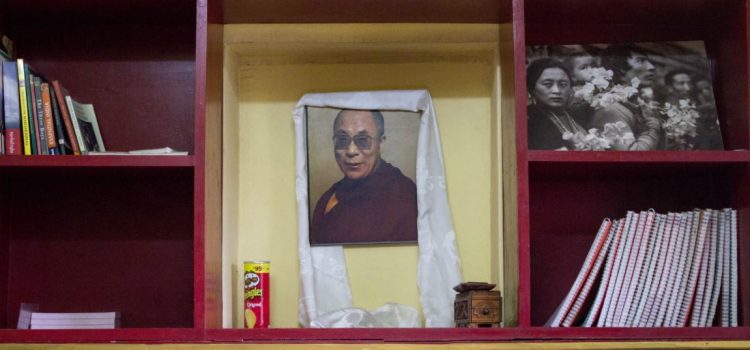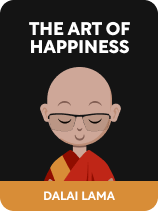

This article is an excerpt from the Shortform book guide to "The Art of Happiness" by Dalai Lama. Shortform has the world's best summaries and analyses of books you should be reading.
Like this article? Sign up for a free trial here .
Do you often feel anxious? What causes anxiety, and how do you overcome it?
According to the Dalai Lama, anxiety, like all negative emotions, stems from ignorance. If you struggle with anxiety, educate yourself about where the anxiety comes from and whether it’s valid, recommends the Dalai Lama.
Here’s how to deal with anxiety, according to His Holiness the Dalai Lama.
1. Educate Yourself to Be Less Anxious
If you struggle with anxiety, educate yourself about where your anxiety stems from. If, for instance, you’re anxious about going to an event, analyze your thoughts and figure out if you’re anxious for valid reasons—perhaps because you’re giving a speech—or because of a generalized fear of socializing.
(Shortform note: Figuring out the source of your anxiety can be difficult. If you’re not sure where your anxiety comes from, consider whether the following common anxiety triggers might be affecting you: 1) Work environment—is your job stressful? 2) Travel or commute—Do you spend a lot of time in transit? 3) Withdrawal—Are you withdrawing from alcohol, drugs, or medication?)
2. Develop Your Motivation to Be Less Anxious
The Dalai Lama recommends not developing a motivation to be less anxious, but rather to pivot your motivation toward being a kinder person. According to the Dalai Lama, anxiety often arises when you feel you can’t meet expectations. If, instead of worrying about expectations, you develop the motivation to just be the most compassionate person you can be, then, says the Dalai Lama, no matter whether you meet expectations, you’ll feel good because your intentions were good.
3. Exert Yourself to Be Less Anxious
The Dalai Lama recommends a two-pronged approach to combating anxiety in the moment: If there’s an actionable solution to the problem that’s giving you anxiety, work toward that solution. For instance, if you’re anxious over whether a fellow party guest will bring the same bottle of wine as you, the solution is to call them and ask, not to fret. If there’s no actionable solution to the problem that’s giving you anxiety, stop worrying. If you can’t get in touch with the other guest, drop the worry. You can’t change anything about the situation, and worrying won’t help.
(Shortform note: If after exerting yourself to be less anxious in the way the Dalai Lama recommends, you still feel anxious, engaging in physical activity can help alleviate remaining anxiety. This is because movement lessens muscle tension, meaning your tense body doesn’t add to your feelings of anxiety. Further, your brain releases neurochemicals like serotonin and GABA, both of which combat anxiety, when you exercise. Finally, the frontal region of your brain is activated, and this keeps activity in the amygdala—the center of reactivity and threat-responses—in check.)

———End of Preview———
Like what you just read? Read the rest of the world's best book summary and analysis of Dalai Lama's "The Art of Happiness" at Shortform .
Here's what you'll find in our full The Art of Happiness summary :
- The Dalai Lama's Buddhist path toward happiness
- The use of scientific evidence to support the Dalai Lama's beliefs
- Concrete actions you can take to improve your outlook on life, relationships, and resilience






